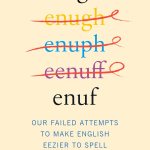Deaver, Henry offer new summer reads
Published 6:38 am Saturday, June 14, 2025



South of Nowhere: Jeffery Deaver
Given the popularity of the CBS TV show “Tracker,” one would think a new Colter Shaw novel would fill the book store shelves.
Nope.
Trending
Not in South Georgia anyway.
I ran across one copy of Jeffery Deaver’s “South of Nowhere,” the latest Colter Shaw novel, not even in the new releases but back in the fiction section with the older Deaver books.
“Tracker” is based on Deaver’s Colter Shaw novels. “South of Nowhere” is the fifth book in the Colter Shaw series. Like the TV show, the book Colter Shaw finds missing people for reward money; often, Shaw helps people without any reward being offered.
In “South of Nowhere,” Shaw offers help to a town endangered by flooding from a failing levee. His first job in the rural California town of Hinowah, nicknamed “Nowhere,” is finding a family inside a vehicle swept away by the initial collapse of the levee.
His sister, Dorion, a private disaster relief specialist who is helping town leaders of Hinowah, asks for his assistance. Colter and Dorion are drawn into a disaster that elicits their help in disrupting a domestic violence situation, pulls them into a Hatfields and McCoys style feud, encounters with a backwoods man with a violent streak, and evacuating the small town before the levee collapses even further by either nature … or via the motives of greed.
Deaver is possibly better known for his Lincoln Rhyme series, best known by the title of its first novel, “The Bone Collector.” He began writing Colter Shaw books a handful of years ago and they have proven popular, though judging by the book store shelves, not as popular as their “Tracker” TV adaptation.
Trending
If you’re a fan of “Tracker” and looking for a good series to crack open for a summer read, open “South of Nowhere,” or track down any of the Colter Shaw novels.
Enough is Enuf: Gabe Henry
Why do spelling bees draw such interest? Because spelling the English language is a mine field.
We all know it but in “Enough is Enuf: Our Failed Attempts to Make English Eezier to Spell,” Gabe Henry reminds us just how difficult it is in a book that is as entertaining as it is informative.
As Henry notes in the book’s opening, “ … choir and liar rhyme, daughter and laughter don’t, and God help you if you encounter a pterodactyl out in the wild.”
Arguably, Henry notes a person could spell fish as G-H-O-T-I based on spelling sounds from the English language: “GH makes the F sound in tough, O sounds like an I in women, and TI is pronounced SH in station.” Thus, Ghoti = Fish.
Adding, “There’s a reason spelling bees are only common in English-speaking countries: English spelling is insane “
“Enough is Enuf” looks at efforts through recent centuries to revise English spelling so the spelling matches the phonetic sounds of words. Some of these simplified spellings have tried adding more letters to the alphabet since “English has 44 sounds but only 26 letters.” Some have deleted letters from our known alphabet.
Simplified spelling advocates through the centuries have included Noah Webster of, yes, the dictionary fame; Melvil Dewey of the library Dewey Decimal System whose first name was Melville at birth but he shortened to Melvil in his push to simplify spelling; Benjamin Franklin who created a phonetic spelling system; Mark Twain who vacillated between advocating and mocking simplified spelling; Theodore Roosevelt who tried putting the weight of the presidency behind simplified spelling; Andrew Carnegie who put his fortune behind revising English spelling, etc.
None of these efforts were successful, for many reasons. Some of the changes made spelling more complicated, some phonetic efforts failed because people pronounce various words differently depending on regions, some failed because adults did not want to relearn a new alphabet or learn how to spell words in a different way, most of the revisions were roundly ridiculed by the press and the public, and many critics laughed at the use of “laf” instead of “laugh,” for example, as being a sign of ignorance rather than being a phonetic-spelling revisionist.
They more than likely failed because these efforts were a top-down push to change the ways we spell – an authority dictating a change to the masses, which the masses soundly rejected.
Starting in the 20th century and continuing into the 21st century, however, commercialism, music and the masses have caused numerous changes. Henry gives the example of the use of Ks to replace the traditional spelling position of Cs in product names: Kit-Kat bars, Krispy Kreme donuts, etc.
He refers to Prince and his use of numerals stepping into the place of letters, or using letters to replace words, in his song titles: “Nothing Compares 2 U,” “U Got the Look,” “I Would Die 4 U,” etc.
But more than anything, texting has changed the landscape of our English orthography. And texting is a down-top change. The people have initiated this change to first adapt to media that allowed only a set quota of characters per message, by shortening established words via the omission of letters, the use of numbers to replace letters and the development of now easily understood acronyms (such as “lol” for “laugh out loud”).
Regular people texting and messaging on social media have done more to revise spelling than all of the combined efforts of Franklin, Twain, Roosevelt, Carnegie, Webster and so many other famous and influential folks through the ages.
Henry’s book should be a delight for anyone who enjoys words or anyone who has ever been exasperated by spelling words in English.







